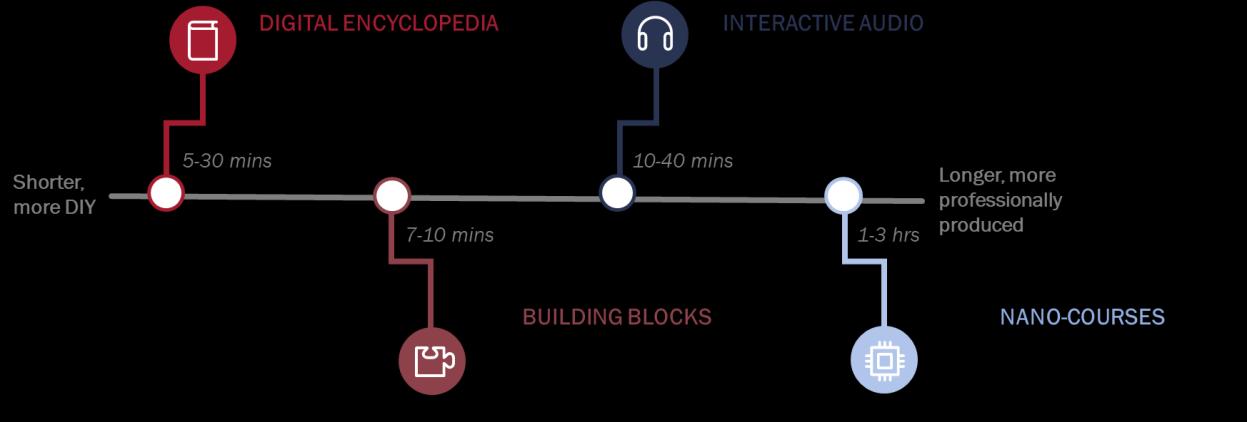
2 minute read
D. Cross-School Opportunities
and cost, while large numbers of other staff benefit from entirely asynchronous materials. Combining delivery mechanisms in this way promises greater scale in learning, lower costs, and— perhaps most important—greater alignment of learnings across an organization. As “future of learning” strategies are being rethought everywhere, Harvard has enormous potential to address managerial and workforce reskilling needs through its faculty, online library, and state-of-art platforms. Degree programs. One-year master’s programs were forced to go fully online for their duration. Harvard’s Graduate School of Education (HGSE) made a virtue of necessity by reopening admission to its one-year 2020–2021 M.Ed. program in the spring of 2021, seeking to attract students who would have been unable to attend in-person. Within five weeks it received 1.5 times as many applications as in a typical year—and they were more diverse in age, race, ethnicity, and professional experience. They reported higher program satisfaction than is usual. One HGSE leader commented, “They’re a better experience because they’re for those who chose to attend online.”25 HGSE continues to track their experiences and career outcomes in order to inform longterm policy. In the School of Public Health’s hybrid degree program—Harvard’s first such program, approved in 2014–2015—much of the curriculum was delivered virtually, with just a few on-campus modules. Data on applications and enrolled students, their performance, and their subsequent careers showed them to be largely similar to their in-person counterparts. By 2021–2022, many applicants to the hybrid program were more interested in the online mode. Engagement at scale. It was long assumed that high-quality teaching must be in-person and in small groups. Online learning could achieve high scale, but at the cost of engagement—or so the thinking went. The experience with MOOCs at Harvard and elsewhere tended to reinforce that assumption. But recent experiences at Harvard both before and during the pandemic call it into question. Numerous ways exist to scale education without compromising the learning experience—and perhaps Engagement and scale can enhancing it. They include pedagogical innovations that be mutually compatible combine with interactive technologies (for example, Advanced Physics 50’s use of Perusall); co-teaching models (for example, Africa Live!); cohortbased approaches and peer learning (HBS Online); live virtual classrooms (HBS Live); classroom technologies that enable high-quality live-streamed experiences (CS50); blended experiences that allow for continuous learning across the student-to-alumni lifecycle; partnerships that leverage comparative advantages (Harvard as a content provider to other universities and organizations); and cascading for impact through alignment (using different platforms to teach different populations within a given organization).
D. Cross-School Opportunities
The ability of learners to be “one click away” from anyone in the Harvard community facilitated new offerings, ways of interacting, and learning experiences. Those include interactions with alumni, guest speakers, and cross-school clubs and connections. Some schools leveraged modular content from one another. A few faculty taught “University courses” that enabled, for the first time, simple, simultaneous enrollment by students from every Harvard school. These courses were
25 Matthew L. Miller, Senior Lecturer on Education and Associate Dean for Learning and Teaching (HGSE).



